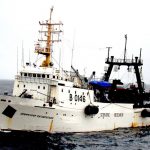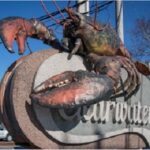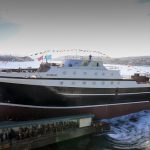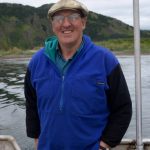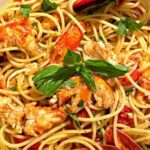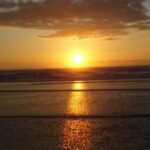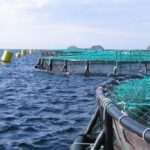Category Archives: Pacific
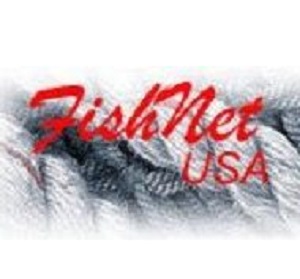
“With a bit of prodding by some valued colleagues”, we will be launching a series “Looking Back”
A few of us were conversing, and the topic of resurrecting’s some of the posts, pages, and information of the past to gauge the changes and improvement’s achieved though the past few decades of fishery management and sacrifice, or if there have been any improvements at all! Nils Stolpe, Jim Lovgren, and I thought perhaps these various posts and articles would give an indication of how the domestic fishing is doing! Both of these gentlemen are exceptional writers, with exceptional knowledge of the domestic fishing industry and they have been featured here many times. We hope people revisit these articles, and for many of the newer fishermen in the industry today, this may be the first exposure to this interesting, and valuable info, and other stories. We’ll kick it off with “With a bit of prodding by some valued colleagues,” >click to read< 13:07
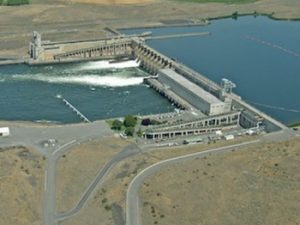
Feds reject removal of 4 US Northwest dams
The four dams on the lower Snake River are part of a vast and complex hydroelectric power system operated by the federal government in Washington, Oregon, Idaho and Montana. The massive dams, built in eastern Washington between 1961 and 1975, are at the center of a years-long battle that pits the fate of two iconic Pacific Northwest species — the salmon and the killer whale — against the need for plentiful, carbon-free power for the booming region.,, Snake River sockeye were the first species in the Columbia River Basin listed under the Endangered Species Act in 1991. Now, 13 salmon runs are listed as federally endangered or threatened. Four of those runs return to the Snake River. >click to read< 08:17

A night with Dave and Bear at Happy Jacks Saloon: The Last Morro Bay Fisherman’s Dive
Dave hated me. Wanted to fight me. Wanted to kick my ass. Felt I upstaged and up-ended him in every way. He was the unofficial leader of the “Brew Crew,” a notorious pack of young fishermen and deck hands who, when they were in town, terrorized Happy Jack’s like wild west cowboys treeing a saloon after a long cattle drive.,,, Nobody else was saying anything. Fishermen love to see a good fight. So, as Dave bristled and continued challenging, berating and threatening me, I spied his at-least-100-pound Rottweiler, Bear,,, >click to read< 08:15
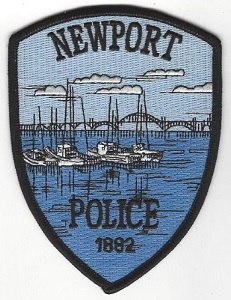
The body of a missing commercial fisherman has been recovered from Yaquina Bay
A body found in Yaquina Bay has been identified as that of a fisherman who has been missing for nearly three weeks, the Newport Police Department said Thursday. Norman Grant was reported missing on Feb. 9 and hadn’t been seen since the evening of Feb. 8, Chief Jason Malloy said in a statement. Cell phone records and video from local surveillance cameras put Grant’s last known location near a fishing boat that he worked on called the F/V Prolifik. The boat was moored at Hallmark Fisheries. >click to read< 09:18

Managing A Lucrative Resource In The Face Of Climate Change
Conservationists and commercial fishing industry leaders came together on the need to restructure the Magnuson-Stevens Fishery Conservation and Management Act to adequately consider climate impacts during a panel discussion in Honolulu. But that was about it for the common ground they found during the last stop on U.S. Rep. Jared Huffman’s nationwide “listening tour” on reforming the MSA. The panelists, which also included state and federal officials, had diverging views on the effectiveness of marine national monuments like Papahanaumokuakea and whether the eight regional councils that the law set up to manage fishery resources nationally should have designated seats to ensure representation from environmental, indigenous and scientific interests as well as the commercial fishing industry. >click to read< 10:38
What ever happened to HR-200? I have no interest in these people reauthorizing anything.
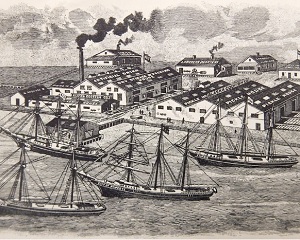
‘Codfish Fever’ – Hungry Gold Miners Craved the Salted Fish, so a Ragtag Fleet Set Off for Alaska
Codfish fever got its start in the years following the discovery of gold in central California in 1848, when San Francisco grew quickly from a sleepy hamlet into a thriving commercial center. Many of those who migrated to California during the Gold Rush were from western Europe. For them, salted cod was a dietary staple.,, Initially, East Coast merchants supplied Californians with salted Atlantic cod shipped via the Isthmus of Panama or Cape Horn. But this was a long, expensive journey for the fish, and California entrepreneurs recognized an opportunity to replace Atlantic cod with Pacific cod. It was one Captain Mathew Turner, an opportunistic merchant, who pioneered the U.S. Pacific cod fishery. >click to read< 08:43

California water debate heads to court after Trump joins discussion
After years on the sidelines, the Bureau of Reclamation Commissioner Brenda Burman says new federal plans to divert water from the delta region in Northern California to farms in the southern part of the state will bring water where it’s needed most. “It is meant to balance all of the factors. More for people, more reliable for some of the best farmland in the world, more reliable for fish as well,” Burman said. But for decades, environmentalists and the fishing industry argued pumping threatens endangered fish species. Video, >click to read< 09:37

Submissions for Charleston Fishermen Memorial due March 31
The deadline to request name engravings for the Charleston Fishermen Memorial at the Charleston Marina for this past year is March 31. To add a name to the memorial, the person must have commercially fished out of Charleston/Coos Bay area for a minimum of three years. Those with years spent in businesses related to the Charleston fishing industry also will be considered for the industry plaque. >click to read< 20:22
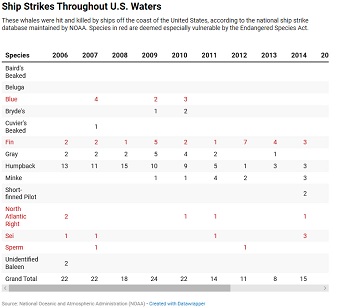
‘Ship Strikes’ Killing Whales! A voluntary slow-down program for passing ships is frequently ignored
According to NOAA, these “ship strikes” are blamed for at least 88 whale deaths in California. Since 2006, 239 whales were killed in all U.S. waters over the same time period. Of those whales killed, nearly one in three was a member of an endangered species. Scientists, however, believe the true number of deaths is far higher than the official counts. “The majority of reported ship strikes probably represents a tenth or less of the true number occurring,” said Calambokidis. “The majority of whales that die, in fact, sink and disappear and are never documented.” Check the chart that says how many estimated by NOAA! >click to read< 14:16
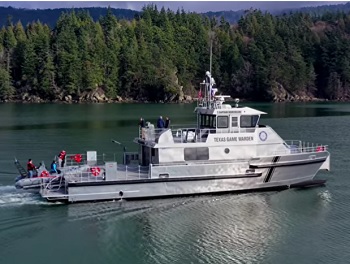
American Marine launch’s Texas Parks and Wildlife aluminum catamaran patrol boat for State and Federal waters
The 80’ x 27’ (OAL) Captain Murchison features twin CAT C18 ACERT D Engines, with Hamilton Jet HM 521 waterjets and is built to USCG Subchapter T standards. It is also the first vessel in North America to feature Hamilton Jet’s innovative Advanced Vessel Control (AVX) system. The new AVX features include both a station keeping and a JETanchor positioning system. Additional vessel features include a DJI Mavic Drone integrated to the helm displays, as well as a FLIR M400 XR High resolution Thermal Imaging video with tracking to assist with patrol duties in the Gulf of Mexico. The state-of-the-art hydrofoil assisted vessel, from Teknicraft Design, will combine innovative design features critical to modern maritime law enforcement. Video, >click to read< 14:48
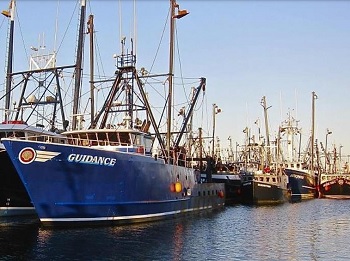
New Bedford Remains Top Money Port in the United States
Scallops continue to be king in the Port of New Bedford. The U.S. Commerce Department on Friday released its 2018 report on commercial fishing. For the 19th consecutive year, the Port of New Bedford was the most lucrative port in the nation, with its total catch of seafood valued at $431 million. Dutch Harbor, Alaska landed the most fish for the 22nd consecutive year, more than 763 million pounds. >click to read< 10:10
Fisheries of the U.S. Report for 2018 Shows Strong Year for Fishermen – According to the Fisheries of the United States report, which is compiled by NOAA using data and analysis not immediately available at the same end of a fishing year, U.S. highest value species groups in 2018 included lobster ($684 million), crabs ($645 million), salmon ($598 million), scallops ($541 million), and shrimp ($496 million). >click to read<
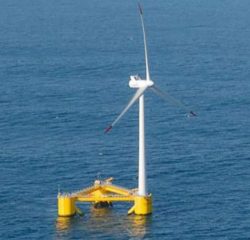
Deal emerges to bring 1st offshore wind farms to California Coast, but a fleshed-out deal could be elusive
For years, the military has managed to block the establishment of offshore wind lease areas off of Southern and central California, effectively holding back development across the entire state.,, Now, a tentative compromise is being floated by Rep. Salud Carbajal (D-Calif.) with backing from the military and federal and state agencies: Let developers produce wind power in central California waters that the military had once ruled incompatible with its own operations, But a fleshed-out deal could be elusive. Military spokespeople and state officials who oversee coastal land use were quick to downplay suggestions that a breakthrough is afoot. >click to read< 17:40
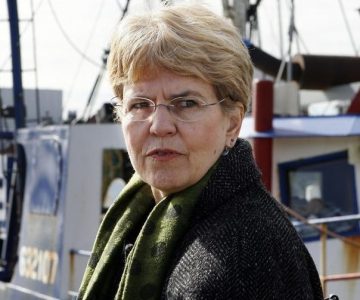
Know your ENGO History! Pew’s Conquest Of The Ocean
This is the story of how a handful of scientists set out from Oregon with an unshakable belief that they knew what was best for the rest of us. They ended up conquering the world (or at least the watery portions of it) and got rich along the way, while the fishermen and their families only worked harder and got poorer. When their scientific dogma connected with nearly unlimited resources, the earth quaked and the resulting tidal wave swept aside all the usual checks and balances. It carried along the media, the politicians, the government agencies and the non-governmental organizations with such force that seemingly no one could stand against the tide. By David Lincoln, >click to read< 15:25
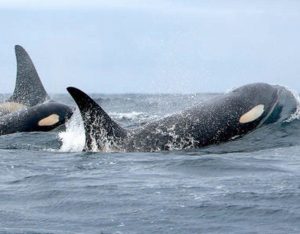
Salmon fishing closures won’t save the whales. Federal government accused of going after salmon fishery as ‘low hanging fruit’
“We (recreational fishers) are taking one per cent of the chinook salmon stock. That’s not the problem. The real problem is these whales are swimming in waters full of human waste,” said Peter Hovey. “It’s all the drugs going down the drain, the human waste, toxic runoff from agricultural operations, and everything else we’re putting into the water. Between that and the inbreeding that we caused, it’s no wonder their numbers are in decline.” Connie and Peter Hovey, >click to read< 10:19
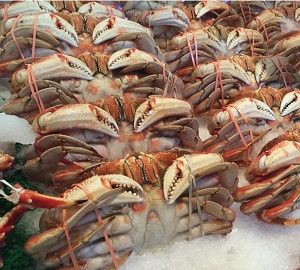
U.S. seafood exports dry up while cheap Russian crab is undercutting local industry
Fishermen in Alaska claim they have been caught up in Russia’s counter-sanctions, with Moscow’s ban on western food imports blocking sales to one of their key markets while allowing cheap Russian seafood to flood into the U.S. Russian seafood exports to the U.S. have jumped 69% since 2013 — the year before Russia blocked most imports of agricultural products from the U.S. and the EU in a tit-for-tat response to sanctions levelled against Russia after it annexed Crimea. >click to read< 08:11
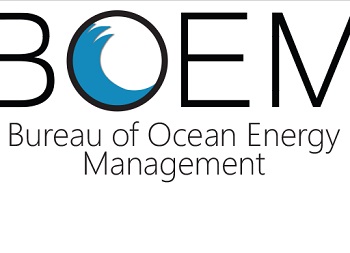
A fowl wind blows offshore
With the increased science available, showing a variety of impacts, The BOEM (Bureau Of Ocean Energy Management) Lease schedule through 2024 within the Department of Interior should be reevaluated. Since there is no official BOEM Atlantic, director, or administrator that has ever been permanently appointed, the request for a Atlantic review has not been initiated. A reliance on the bidders financial review of the lease sites is how BOEM is determining the viability for development. ( A buyer beware mentality ). This policy is a mistake and is costing the taxpayers millions. Brick Wenzel >click to read< 21:17
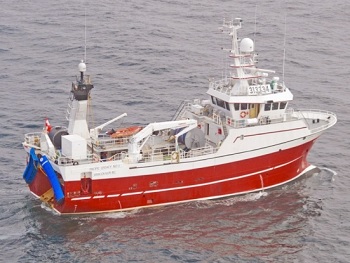
International Scientific Expedition to probe Pacific salmon survival
“While we recognize that ocean and climate conditions are major factors regulating salmon abundances, the mechanisms regulating abundances in the ocean are not known,” B.C. scientists Richard Beamish and Brian Riddell,, Scientists are seeking to provide more accurate forecasts of salmon returns during what Beamish and Riddell say might be the most difficult time in recent history for stewardship of Pacific salmon.,, The survey takes place as B.C. fishermen fear disastrous returns this year following poor returns for much of the coast last year. >click to read< 18:56

Governor Brown Calls for Tearing Out Snake River Dams. Washington Reps Are Outraged!
Brown said removing the four lower Snake River dams in Washington state is the most certain way to boost salmon and steelhead recovery in the Columbia Basin. She sent a letter to Washington’s Democrat Gov. Jay Inslee this week, offering her support — and outraging Washington state’s three Republican U.S. congressional representatives. “Gov. Brown’s position is not only misguided, it is shocking and extreme,” said Reps. Dan Newhouse, Cathy McMorris Rodgers and Jaime Herrera Beutler, in a joint statement Friday afternoon. >click to read< 13:14
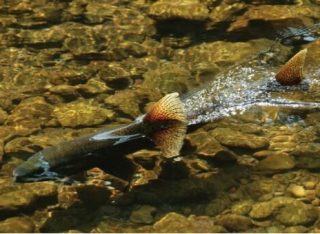
Columbia River Salmon Rules Set
The directors of the Washington and Oregon departments of Fish and Wildlife reached an agreement this week on allocations and gear types for Columbia River salmon fisheries in 2020. The Washington and Oregon Fish and Wildlife commissions earlier this year delegated development of 2020 Columbia River fisheries to Oregon Department of Fish and Wildlife (ODFW) Director Curt Melcher and Washington Department of Fish and Wildlife (WDFW) Director Kelly Susewind. >click to read< 12:10
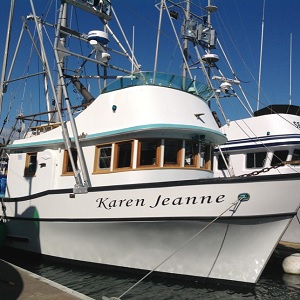
California: Fewer Whales Entangled As Crab Fishermen Face Financial Struggle
Crab fishers are frustrated by recent closures, and CDFW is working with stakeholders and fishermen to come up with an economic plan that can help fishers deal with the changing industry. “We are seeing that the closures affect smaller operators disproportionately,”,,, Dick Ogg is a commercial fisherman out of Bodega Bay, California. His single-boat company is considered a medium-sized operation in the area because he catches many species. In addition to crabbing, Ogg shifts with the seasons to fish salmon, black cod, and albacore as well. This allows him to have income throughout the year. He humbly calls himself a “newbie”, having only been a commercial fisherman for 21 years. >click to read< 07:05

Tom Sewid has applied for a commercial licence to hunt seals and sea lions!
While there is money to be made from selling seal meat and fur, Tom Sewid, a director for Pacific Balance Marine Management (PBMM), said the main reason for resurrecting the hunt in B.C. is to protect salmon stocks. “We’ve all identified that we’re losing our salmon due to overfishing, urban sprawl and many other compounding factors, but the biggest one being the overpopulation of seals and sea lions,”. For years, commercial fishermen have pointed to harbour seals as one of the culprits in declining salmon stocks in the Strait of Georgia and sea lions for declines in herring. A recent scientific study appears to back them up. >click to read< 10:28
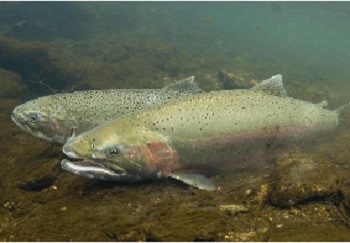
Washington Department of Fish and Wildlife Sued Over Steelhead Farming in Puget Sound
Environmental and conservation groups filed a lawsuit Tuesday against the Washington Department of Fish and Wildlife over the agency’s recent decision to allow Cooke Aquaculture to rear farmed steelhead trout in Puget Sound. The suit, filed in the Superior Court of Washington, alleges that the Washington Department of Fish and Wildlife issued a permit to allow steelhead fish feedlots, a type of fish-farming practice, to operate in the complex waterways of Puget Sound without any consideration of the consequences they would have on the environment. >click to read< 13:01
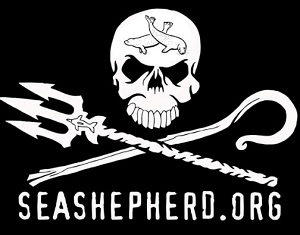
Sea Shepherd’s declaration of media war against BC seal hunt
In the middle of what is presently called “The 6th Extinction”, the DFO, our Ministry of Fisheries and a few westcoast First Nations individuals and Chinese Government officials are entertaining a massive west coast seal slaughter.,,, Commentary by Captain Paul Watson The Sea Shepherd Conservation Society has physically opposed the slaughter of seals and sea lions around the world since 1977 – from Newfoundland and Labrador to Namibia, Norway, Russia, Finland and Scotland. We cannot ignore any seal killing program,,, >click to read< 10:07
Sea Shepherd says it was shot at by poachers in Mexico – >click to read<
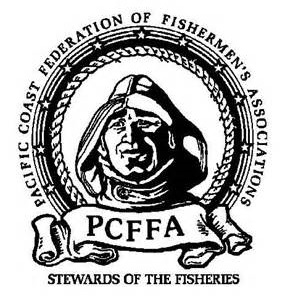
Job Opening: Executive Director, Pacific Coast Federation of Fishermen’s Associations
PCFFA and IFR seek an Executive Director to carry out their collective fisheries and environmental policy missions,, The PCFFA and IFR Executive Director is responsible for management of operations, development, budgeting, policy and legal strategy, government relations, human resources, communications, and member engagement.,,, A competitive salary and benefits package is offered. PCFFA provides a company vehicle to the Executive Director. Our beautiful office is located on the waterfront in San Francisco’s Presidio, and the freshest, most sustainable seafood on the planet is part of the compensation package. >click to read< 07:00

First month of Dungeness crabbing disappointing
Crabbing season is off to a slow start in Crescent City and Brookings, Ore. “We’ve had a lot of bad weather, not too many days out fishing,”,, Fishermen were anxious to begin crab fishing when the season opened on Dec. 31, after being delayed twice due to the crab quality. So far, the season has been disappointing, yielding a low overall poundage of crabs, according to Crescent City Harbor Commissioner Rick Shepherd and Burkman. It is not the worst year Crescent City and Brookings has seen, but it’s certainly not the best. >click to read< 11:55
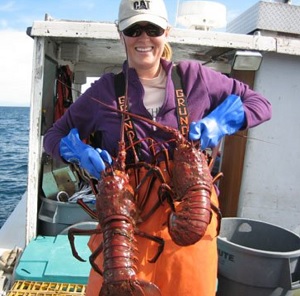
Coronavirus: With China’s Borders Closed to Imported Live Seafood, Local Fishermen Feel the Pinch
As the number of the sick and the dead continue to rise alarmingly in China, the economic effects of the 2019 novel coronavirus outbreak were felt in the Santa Barbara Harbor.,,, “Santa Barbara brings in $4 million to $5 million a season,” said Chris Voss, president of Commercial Fishermen of Santa Barbara. The prized crustacean had been stockpiled for China’s late January Lunar New Year festivities, he said, from New England to Australia. When China closed its borders to live-animal foodstuffs about 10 days ago, everyone was hit. >click to read< 10:21
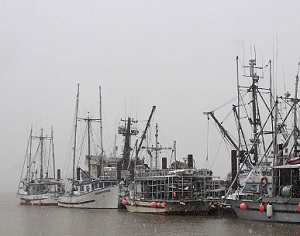
West Coast fishery appeals for aid but federal fisheries minister is missing in action
Commercial fishermen in B.C. are sending out an SOS following last year’s disastrous salmon season that has already sunk some boat owners. The union representing commercial fishermen says years of Department of Fisheries and Oceans (DFO) “mismanagement” pushed some commercial fishermen to the brink, and 2019 pushed them over. “Hundreds of fish harvesters are facing financial ruin after decades of fisheries regulation mismanagement,” said Joy Thorkelson, president of the United Fishermen and Allied Workers’ Union. >click to read< 09:19
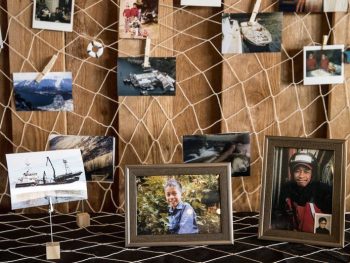
Seattle memorial held for crew member lost in sinking of F/V Scandies Rose
Tony Ganacias introduced his son to the sea when he was working at a cannery near Cold Bay in Alaska, and bought him his first boat at age 17. That was it, Ganacias said. From then on for Arthur it was nothing but boats and fishing and cars, including his beloved 1971 Dodge Charger. On Saturday afternoon, Arthur Ganacias, known to most everyone as “Art,” was remembered by his father and other family and friends just a little more than a month after he and four other crew were lost when the Scandies Rose went down in 20-foot seas in the Gulf of Alaska. Ganacias, 50, was the boat’s engineer. photo gallery >click to read< 06:44
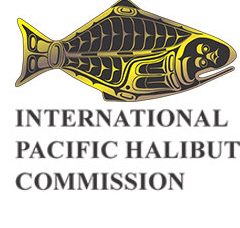
International Pacific Halibut Commission cuts 2020 harvest levels for US waters
Amid ongoing stock declines and concerns about commercial bycatch, the International Pacific Halibut Commission opted to cut allocations in Southcentral and Southeast Alaska for 2020.,, U.S. Commissioner Chris Oliver said he recognized that there maybe some dissatisfaction on the U.S. side,, Canadian Commissioner Peter DeGreef said he objected to the level of fishing intensity as well, saying that without a cut,,, >click to read< 10:06


































